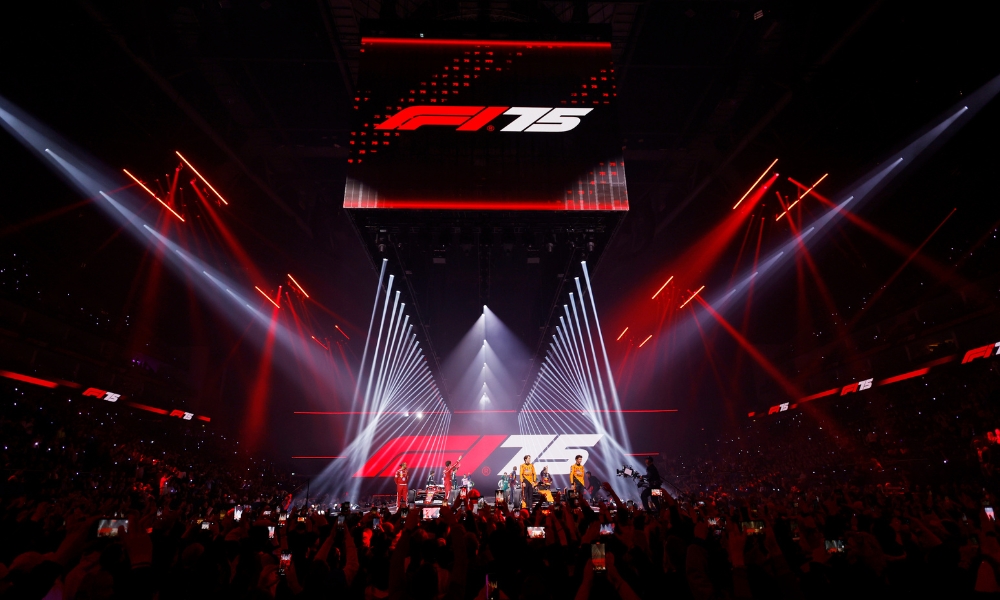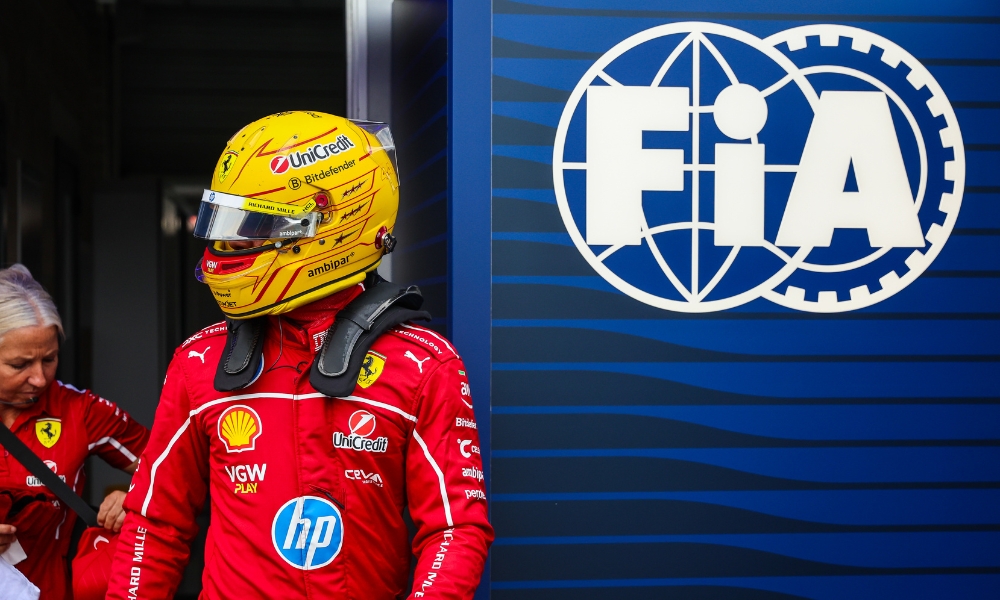It’s February: Formula One is hosting a lavish season launch event at the O2 Arena, signalling its newfound place at the heart of popular culture.
Various livery launches – ranging from sleek to ridiculous – and Jack Whitehall’s one-liners punctuate the night, but one moment stands out. A tribute to the safety work carried out by the International Automobile Federation (FIA) begins, but it is immediately met by an unmistakable chorus of boos from the attending fans.
Dissatisfaction with the motorsport governing body has always existed in some form, but rarely has there been such a public display of defiance.
Nothing encapsulated the current sentiment toward the FIA more. With the organisation increasingly seen as the foil to Formula One on the global stage, its position in the minds of fans is deteriorating as the sport continues to grow.
Googling ‘FIA controversy’ means being met with a flood of articles outlining the many recent issues with the organisation. Some criticism is justified, while some is less so. But the court of public opinion has seemingly made its judgment on the FIA.
Now, the governing body seeks a closing statement that can begin to reverse this perception.

The FIA was booed by fans at Formula One’s season launch event at the O2 Arena earlier this year (Image credit: Getty Images)
‘Referees aren’t always liked’
As a governing body, the FIA faces a complex challenge – despite efforts to modernise its image, a certain level of animosity will likely persist.
“My role is to make sure the right narrative is being shared with our stakeholders and I think where we’ve had the most success has been around telling the true story behind the FIA,” Craig Edmondson, chief commercial officer of the FIA, tells BlackBook Motorsport.
“Historically, it’s been regulation which is always going to be a difficult piece because you’re effectively the referee quite often, and referees aren’t always liked, but it’s absolutely essential for sport because you need integrity and credibility.”
Yet, Austria’s national motoring club, the OAMTC, accused the FIA of lacking exactly that in a letter to the governing body ahead of a vote which passed a controversial set of amendments to FIA statutes in June.
The FIA also came under fire from its former deputy president Robert Reid, one of a number of high-profile departures, who resigned in April and accused the organisation of a “breakdown in governance standards”.
It’s perhaps a sensitive topic for those still working at the FIA, but Edmondson doesn’t shy away from discussing those that have left recently.
“We’re going through a transformation,” he says. “Let’s be clear, I didn’t join the FIA to manage the status quo.
“That transformation is not always going to be right for everybody. It’s a clearly defined strategy with a structure and a resourcing plan that’s built around it which is fundamentally aligned with a need for expertise and experience that can deliver against that plan.
“Naturally, new people are going to be joining the FIA who align with that. But unfortunately some people have left the organisation to find new opportunities because their skillset and expertise is maybe better aligned with other organisations than the new direction of travel for the FIA.”
‘We want to operate like other sports organisations’
This latest direction for the FIA has taken the form of a new London office, so new that BlackBook Motorsport visited on the first day its doors opened. Situated in Knightsbridge, the space is stylish and modern – two qualities the FIA is currently rarely associated with.
The organisation has its work cut out to evolve substantially, at least in the short term. However, hope emerges in the form of Formula One, which is now unrecognisable from the outdated operation it was just ten years ago.
The FIA will struggle to follow the digital-first pathway forged by the Liberty Media-owned series, but it can look to Formula One’s commercial overhaul for inspiration – and that’s exactly what the governing body is doing.
“We wanted to change the way that we’re operating from a commercial perspective, and it included appointments like myself, and this [office] is a natural next step to be in the places where those in motorsport want to do business,” says Edmondson.
Edmondson joined the FIA in September 2023, having spent almost 15 years with English soccer’s Premier League, including as head of marketing and commercial. Before being appointed by the FIA, he held positions at sports tech unicorn Zwift, pioneering all-female motorsport championship W Series, and esports organisation Fnatic.
That background is the antithesis of what the FIA is known for. As a regulatory body, its innovations in safety and technology have been incredible, but the global federation has been slow to break new ground elsewhere.
“Quite rightly, there’s been a focus on the regulatory side and, in particular, safety for motorsport, as well as representing the interests of our mobility clubs and building out benefits for society,” explains Edmondson.
“Off the back of that, it was really clear there’s a lot more to the organisation. We wanted to operate more like other organisations and rights holders within their sector. The FIA for motorsport are the equivalent of Fifa or the IOC [International Olympic Committee].”
New structure, new operating model, new team
Commercially, the FIA has come to life after many barren years. The next step is ensuring this momentum remains consistent for the organisation.
2024 marked the strongest financial performance for the FIA in eight years with an operating profit of €4.7 million (US$5.3 million). This ended five straight years of operating losses, laying a solid foundation for future growth.
As a nonprofit organisation, any profit the FIA makes must be reinvested into the motorsport industry.
There’s a common misconception that nonprofits don’t aim to make a profit. In reality, the FIA must operate as a fiscally responsible entity to achieve its goals and, since it doesn’t have shareholders, revenue isn’t distributed – which is why FIA president Mohammed Ben Sulayem doesn’t receive a salary.
In this context, an overhauled commercial strategy should, in theory, only benefit the FIA and the wider motorsport industry.
So recent is this commercial drive that Edmondson notes there wasn’t even a commercial team when he first joined.
“I was given the opportunity to establish a new department, which means that we needed a new strategy,” he says.
“I drew upon all of my experiences from working in the startup and growth phase but also took on the fundamentals of 14 years operating at the Premier League and how it was working with the biggest broadcasters, the biggest global sponsors, the biggest licensees like EA Sports.
“I brought all of that to the FIA, documented a new strategy and a new approach. This is an entirely new strategy which requires an entirely new structure, an entirely new operating model and an entirely new team.”
The new commercial strategy began to take shape when DHL signed on as the FIA’s official global logistics partner in July, which was a first-of-its-kind collaboration for the organisation.
That is just the first of many moves, so expect the FIA to adopt a global partnership platform similar to soccer governing body Fifa, which boasts a portfolio that includes Saudi oil company Aramco, soft drinks giant Coca-Cola and payments firm Visa.
So while the court of public opinion can be unforgiving, the FIA hopes that a commercial overhaul will add some welcome credibility and help set it on the road to recovery.
Don’t miss the latest news and insights from across the business world of motorsport. Subscribe to the BlackBook Motorsport Weekly newsletter .


